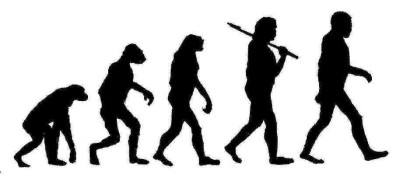 by L. G. William Chapman, B.A., LL.B.
by L. G. William Chapman, B.A., LL.B.
We have a tendency when reading about those who came before us, especially if long ago, to regard them as a bit odd if nonetheless quaint. By comparison our equal inclination is to reckon ourselves rather well-adjusted and modern. The bias is supported by propositions such as:
“Knowledge compounds. The experiences that we have in life, in business and in society, should drive us to learn and to improve. That is, if we want to get better. Knowledge is wealth and grows when learning is applied and compounded.”
It is ambitious to rebut such a promulgation when contemplating, for example, the advances which have been made since the introduction of the internet to popular society (e-commerce, mobile communications, data centres). Yet, apart from technology, medicine, science, engineering, alternative energy production and the like – all adjuncts to ourselves – I question how far we’ve really come in the improvement of human relationships. As antique as Sherlock Holmes and Dr. Watson may be, essentially they behaved towards one another pretty much the same way we do. What use Holmes would have made of the internet to solve his conundrums is quite another question, but I don’t see a remarkable difference between us and them based upon an examination only of human qualities.
Even if one seeks to magnify the essential differences between us and our predecessors by juxtaposing us to the vastly historic individuals such as the Romans, I am not yet convinced that our human temperaments have advanced in step with our technological accessories. Clearly science and medicine are supportive of our existence (our organism), but they remain subordinate to our being. Tackling the inner complexities (and often the maladies) of human interaction is frankly a task which oddly has been all but ignored in comparison to the pursuit of the external developments of life.
I suppose there are those who would argue that religion fills the void of which I speak. This in my opinion is a less than satisfactory retort, not merely for the reason that religion is so often the excuse for horrible acts of violence and social injustice, but more specifically because the focus of religion is frequently upon the life hereafter (and in the meantime religion does what it can to absolve us of our perpetual sins, not exactly a prescription for social harmony). More often than not religious differences keep people apart rather than bring them together.
It is generally accepted that the evolution of any species is something accomplished if at all over a very, very long time, and certainly far less quickly than our industrial, manufacturing and technological advancements have been made. I have no idea how long ago it was that the cave man was dragging his tree stump and knuckles along the ground, but within the last 2000 years from what I can tell, the nature of mankind hasn’t evolved by spectacular leaps. Of course we must rely upon recorded history as the basis of any comparison. Anything I’ve read leads me to believe that the nature of modern men and women is about the same as our ancestors. Even when reading the philosopher Aristotle, in spite of his antiquity, I nonetheless come away with a sense that he and we are not that much different. The prevailing hallmarks of humanity (prejudice, superstition, class distinctions and the like) continue to abound over the centuries.
If I am failing to make my objection clear, it is this: in light of all the endowments and resources we supposedly have at our disposal, we should have progressed more remarkably as co-operative and caring individuals than we appear to have done. It is one thing to extol the virtues of the internet by saying that, using it, one can retrieve almost limitless knowledge; it is however quite another to observe that we still lack the tools to manage personal disagreements, to control our anger, to rationalize different points of view, to accept and understand the effects of failure, to eliminate prejudice based upon sex or colour, to appreciate the mechanics of manners to override instinctive harm to others. If indeed “Knowledge is wealth and grows when learning is applied and compounded”, then I question whether, in the context of human relations, we have any such knowledge; or whether, if we do, it has been applied and compounded. Sadly I believe the unpleasant truth is that matters such as the improvement of human relations take a back seat to many other avenues of learning and enquiry. I don’t for example recall ever having taken a course in public school, high school, university or graduate school which came anywhere near an examination of the improvement of human relations. Why this is so I shall never understand. It seems to me to be a skill fundamental to our needs.
I quite expect that my rambling will be passed off as yet another heady but naive declaration for “world peace”. Perhaps what is closer to the truth is that our visceral instincts will forever trump our cerebral instincts. As a result the evolution of the species is mired in the fabric of nature which as we know requires millions of years to change.


